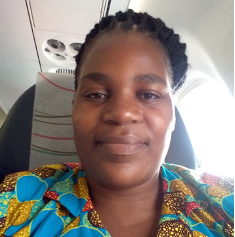Bio
Flora Hasunga is a sociologist, gender specialist, and social development expert specialized in social security, gender-based violence, and women’s economic empowerment. She is an assistant lecturer of the Mwalimu Nyerere Memorial Academy in the Department of Gender Studies since 2008. Her primary areas of teaching are gender and development, development studies, sociology, gender mainstreaming, women’s empowerment, gender analytical frameworks, and gender policy formulation. Currently, she is a PhD student in Sociology. Her PhD academic research assesses “The Contribution of Customary Land Titles on Rural Women’s Economic Empowerment in Tanzania, A case of Mbozi District, Songwe Region.” Hasunga has a degree of arts in sociology and a Master’s Degree in development studies from the University of Dar es Salaam. She worked as an assistant training officer with the Word Vision based in Tanzania in a project of creating awareness to religious and community leaders on gender-based violence and good governance at Dar es Salaam Region. She also presented research on gender-based violence with intimate partners at the University of Dar es Salaam. Also, she worked as a consultant in reviewing strategic plan 2017-2021 of Mkuranga District, Dar es Salaam region. In 2018 and 2019, she attended two workshops of doctoral dissertation prroposal development fellows prepared by SSRC in the African Program at Makerere University, Kampala, Uganda, and at The United States International University Nairobi, Kenya. She is ready to work as a researcher, consultant, project planner, and trainer on gender, women’s rights.

